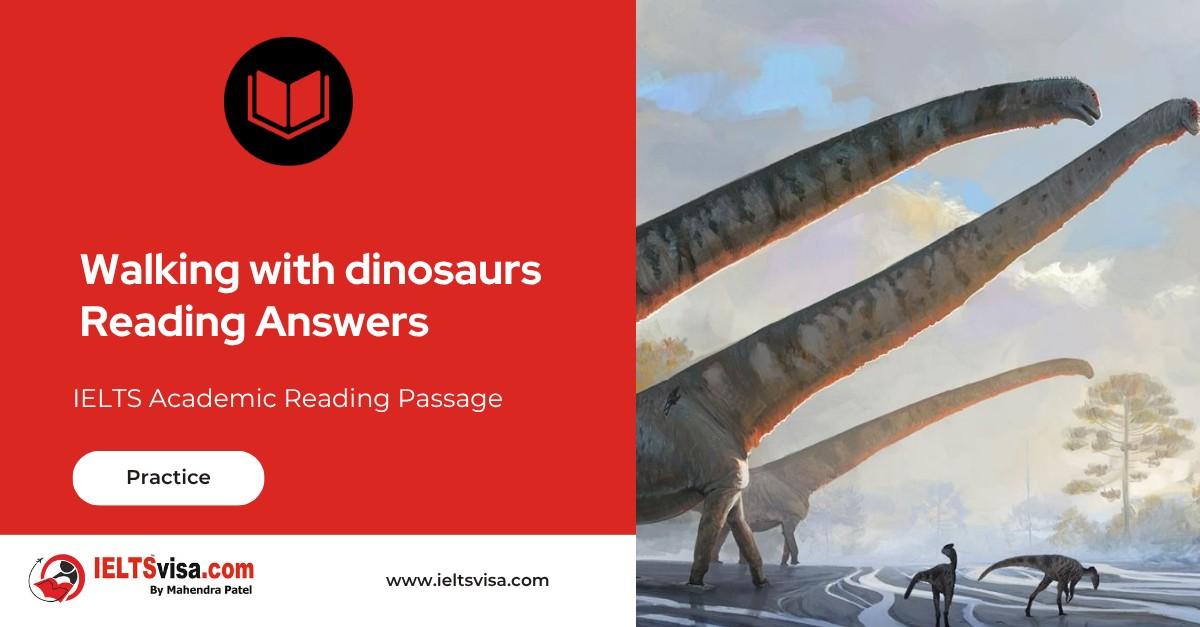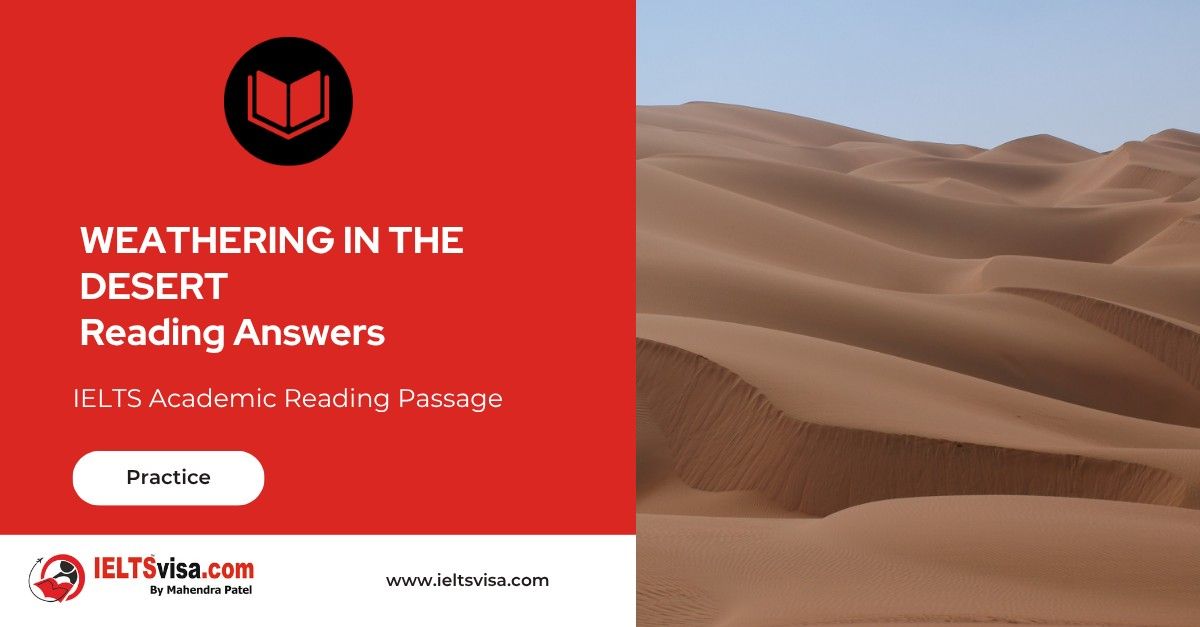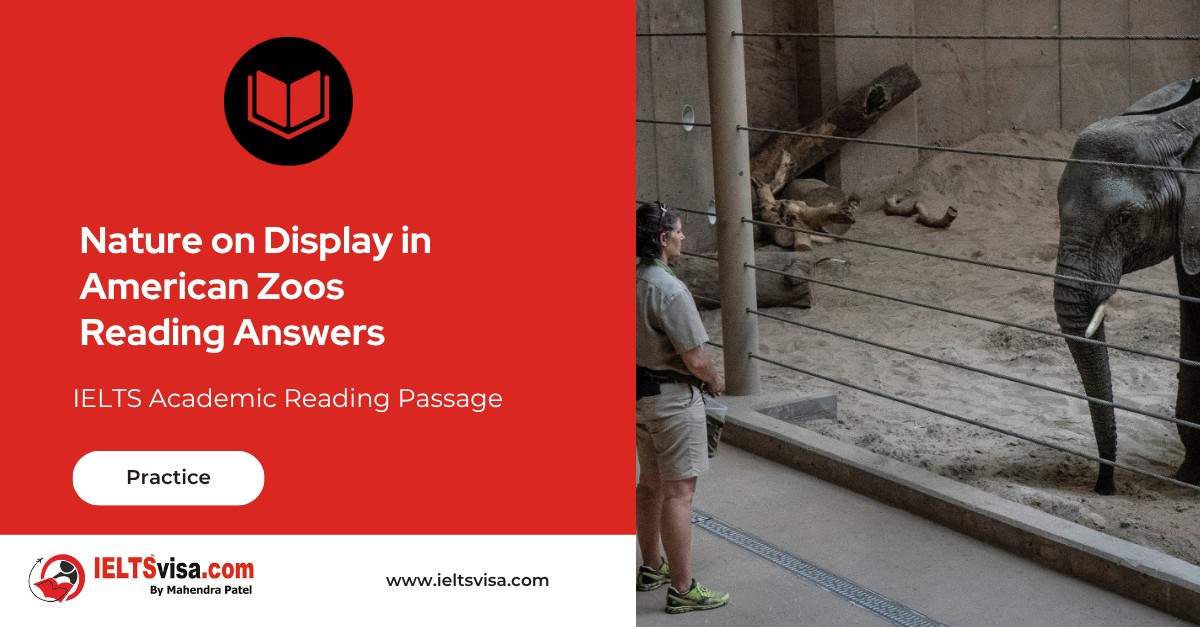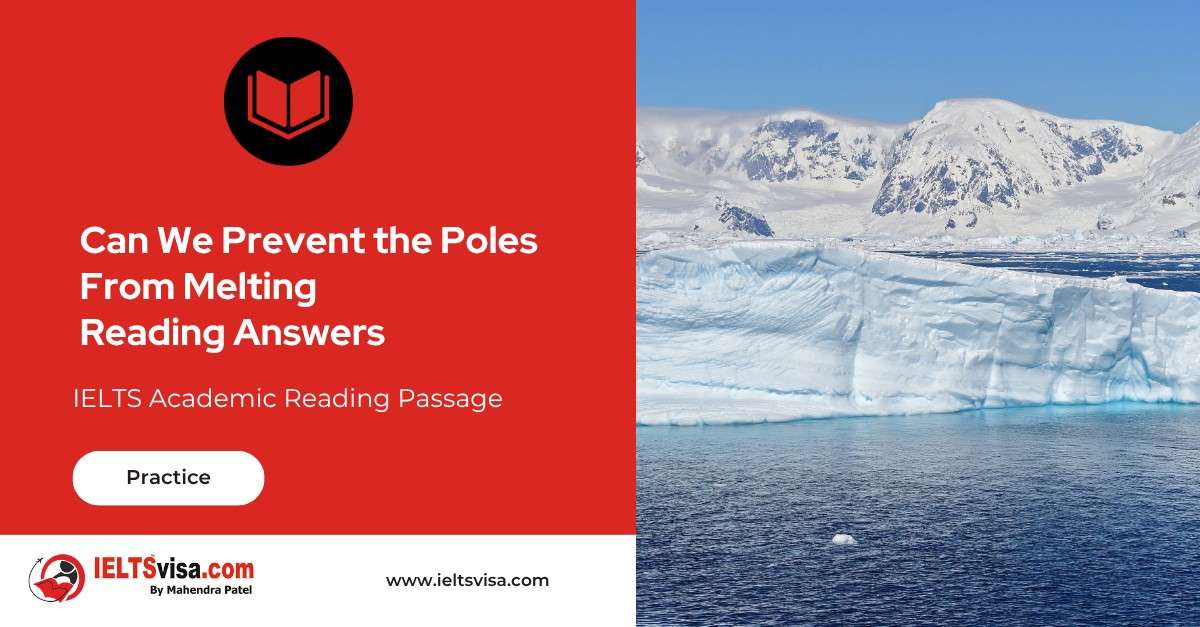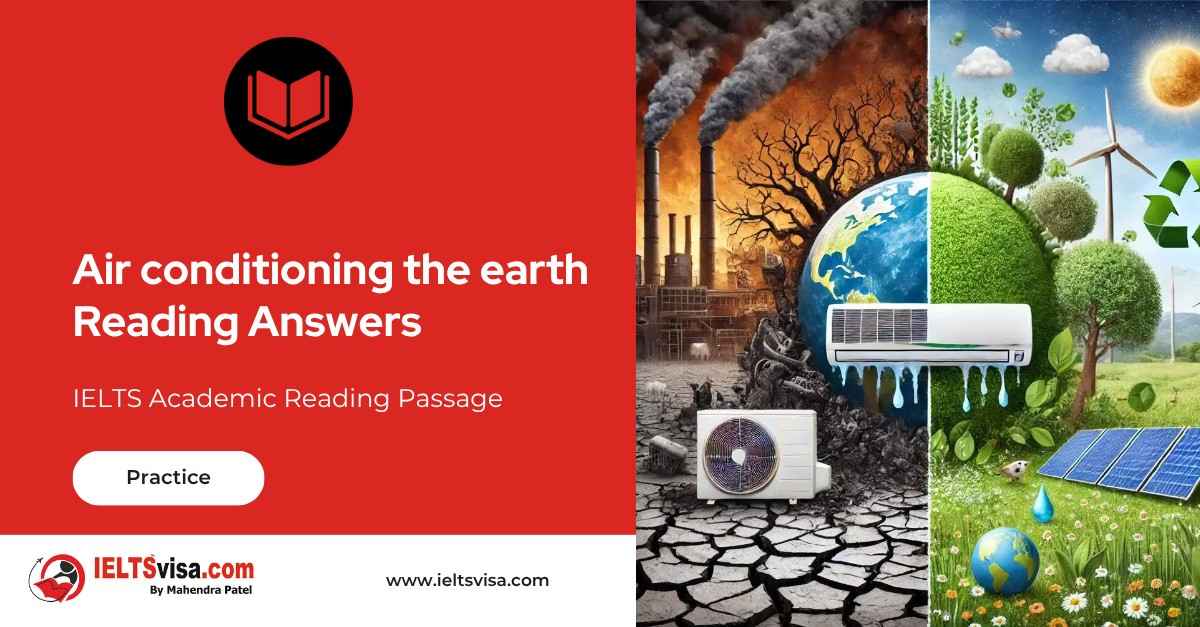National Parks And Climate Change Reading Answers
IELTS Academic Reading Passage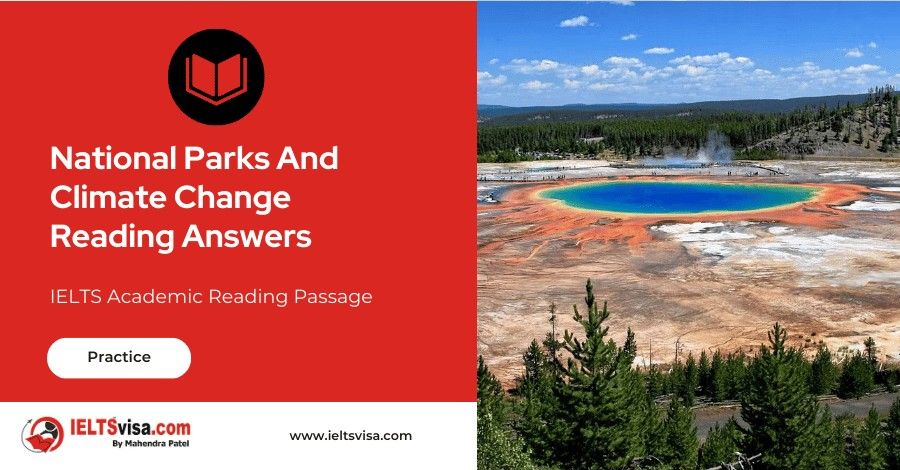
A National parks nature reserves, protected areas and sites of special scientific interest (SSSIs) are an important part of the natural landscape in most countries. Their habitat and terrains vary massively from tundra and glacier parks in the north to wetlands in Europe, steppes in central and Eastern Europe, and prairie grasslands and deserts in other areas virtually all kinds of landscape are protected somewhere. And these protected areas are important for the variety of plant and animal life they harbour: caribou, bears, wolves, rare types of fish and birds.
B But these areas are under threat from a recent peril — global climate change. No amount of legislation in any one country can protect against a worldwide problem. What exactly are the problems caused by climate change? David Woodward, head of the British Council for Nature Conservation, spoke to Science Now’ about some of these areas, and his first point highlighted the enormous variation in nature reserves.
C “Each park or reserve is an ecosystem,” he says, “and the larger reserves, such as those in Canada, may have several types of ecological subsystems within it. There are reserves which are half the size of Western Europe, so it doesn’t make sense to talk about them as if they were all the same or as if the microclimates within them were uniform,” Woodward outlines some of the dangers posed by climatic change to parks in the northern Americas, for example.
D “If climatic change is severe, and in particular if the change is happening as quickly as it is at the moment, then the boundaries of the park no longer make much sense. A park that was designated as a protected area 90 years ago may suffer such change in its climate that the nature of it changes too. It will no longer contain the animal and plant life that it did. So the area which once protected, say. A species of reindeer or a type of scenery, will have changed. In effect, you lose the thing you were trying to protect.” This effect has already been seen in Canada, where parks which once contained glaciers have seen the glaciers melted by global warming.
E Jennie Lindstrom, Chief Executive Officer of H20, the charity which campaigns on an international level on behalf of mainland Europe’s protected wetland and wilderness areas, is even more pessimistic. In a letter to Science Now, she has asserted that up to 70% of such areas are already experiencing such “significant change. In climate ‘ that the distribution patterns of flora and fauna are changing, and that all areas will eventually be affected. She estimates that the most profound change is occurring in the northernmost parks in areas such as Finland, Greenland, Iceland and northern Russia but adds that “there is no place which will not suffer the effects of global warming What we are seeing is a massive change in the environment — and that means the extinction of whole species, as well as visual and structural changes which means that areas like the Camargue may literally look totally different in 50 or 60 years’ time.”
F The problems are manifold. First, it is difficult or impossible to predict which areas are most in need of help — that is, which areas are in most danger. Predicting climate change is even more unreliable than predicting the weather. Secondly, there is a sense that governments in most areas are apathetic towards a problem which may not manifest itself until long after that government’s term of office has come to an end in poor areas, of course, nature conservation is low on the list of priorities compared to, say employment or health. Third, and perhaps most important, even in areas where there is both the political will and the financial muscle to do something about the problem, it is hard to know just what to do. Maria Colehill of Forestlife, an American conservation body, thinks that in the case of climate change, the most we can realistically do is monitor the situation and allow for the changes that we cannot prevent, while lobbying governments internationally to make the changes to the pollution laws, for example, that will enable us to deal with the causes of the problem. “l am despondent” she admits. “l have no doubt that a lot of the work we are doing on behalf of the North American lynx, for example, will be wasted The animal itself can live in virtually any environment where there are few humans, but of course its numbers are small. If climate change affects the other animal life in the areas where it now lives, if the food chain changes, then the lynx will be affected too. Less food for the lynx means fewer lynxes, or lynxes with nowhere to go.”
G Certainly, climate change is not going to go away overnight. It is estimated that fossil fuels burnt in the 1950s will still be affecting our climate in another 30 years, so the charges will continue for some time after that If we want to protect the remnants of our wild landscapes for future generations, the impetus for change must come from the governments of the world.
Questions 1-7
Do the following statements agree with the information given in Reading Passage I? In boxes I — 7 on
your answer sheet write
TRUE if the statement agrees with the information
FALSE if the statement contradicts the information
NOT GIVEN if there is no information on this in the passage
1 Every country has protected areas or national parks.
2 Countries can protect their parks by changing their laws.
3 A protected area or park can contain many different ecosystems.
4 David Woodward thinks that Canadian parks will all be different in 90 years.
5 Canada, more than any other country, has felt the effects of global warming.
6 H20 works to protect wetlands everywhere.
7 Some parts of the world will feel the results of global warming more than others.
Questions 8-13
Complete the summary below. Choose your answers from the box below the summary and write them in boxes 8-13 on the answer sheet. There are more words than spaces, so you will not use all the given words.
There are (8)………………… in attempting to stop the effects of (9)…………… One is the problem of predicting change. Another is a lack of (10)……………………. to change the situation; most governments’ interest in the problem is limited because the problem will not become very serious (11)………………….. Finally, there is the problem of what action we should actually take. One solution is both to keep an eye on the situation as it develops, and to push for changes (12)……………………. Even if we do this, the problem is not going to (13)……………………….. since it takes a considerable time for global warming to happen.
|
governmental willingness |
lots of ways |
global warming |
|
internationally |
for many years |
locally |
|
go away overnight |
many problems |
after all |
Questions 14 and 15
Reading Passage 1 has seven paragraphs A — G. Which paragraphs state the following information?
Write the appropriate letters A -G in boxes 14 and 15 on your answer sheet.
14 All areas of the world are likely to be affected by global climate changes ………………………..
15 Remedies for global warming will not reverse these trends immediately ………………………..

Solution For: National Parks And Climate Change
Reading Answers
| 1. false | 9. global warming |
| 2. false | 10. governmental willingess |
| 3. true | 11. for many years |
| 4. not given | 12. internationally |
| 5. not given | 13. go away overnight |
| 6. false | 14. E |
| 7. true | 15. G |
| 8. many problems |
Review and Practice
- Regularly practice with IELTS reading samples and time yourself to get used to the pressure of the exam.
- Review your mistakes to understand where you went wrong and how to avoid similar errors in the future.
Our Books
Master IELTS Speaking Part 1
IELTS Writing Task 1 Book
IELTS Writing Task 2 Book
National Parks And Climate Change Reading Answers Explanation
Comin Soon
Practice IELTS Other Modules
IELTS Listening
The IELTS Listening test assesses how well you can understand spoken English in various contexts. It lasts about 30 minutes and is divided into four sections with a total of 40 questions. The listening tasks become increasingly difficult as the test progresses.
IELTS Academic Reading
The IELTS Academic Reading section assesses your ability to understand and interpret a variety of texts in academic settings. It is designed to evaluate a range of reading skills, including skimming for gist, reading for main ideas, reading for detail, understanding inferences, and recognizing a writer's opinions and arguments.
IELTS Speaking
The IELTS Speaking test assesses your ability to communicate in English on everyday topics. It lasts 11-14 minutes and consists of three parts: introduction, cue card, and a discussion based on the cue card topic.
IELTS General Reading
IELTS General Reading tests your ability to understand and interpret various types of texts. Here are some key areas and types of content you can expect to encounter in the reading section, along with tips for effective preparation.
IELTS Academic Writing Task 1
In IELTS Academic Writing Task 1, you are presented with a visual representation of information, such as graphs, charts, tables, or diagrams, and you are required to summarize, compare, or explain the data in your own words.
IELTS General Writing Task 1
In IELTS General Writing Task 1, you are required to write a letter based on a given situation. The letter can be formal, semi-formal, or informal, depending on the prompt. Here’s a breakdown of the key components to include in your letter
IELTS Academic Writing Task 2
In IELTS Academic Writing Task 2, you are required to write an essay in response to a question or topic. Here’s a guide to help you understand the essential elements of this task
IELTS Exam Tips
To succeed in the IELTS exam, practice regularly, familiarize yourself with the test format, improve your vocabulary, develop time management skills, and take mock tests to build confidence.
Grammer for IELTS
Grammar is the foundation of effective communication in English. Understanding tense usage, subject-verb agreement, and sentence structure enhances clarity and coherence in writing and speaking.
Vocabulary for IELTS
Vocabulary plays a crucial role in the IELTS (International English Language Testing System) exam, especially in the Speaking and Writing sections. Here’s an overview of why vocabulary is important and how it impacts your performance
RECENT IELTS SAMPLES QUESTIONS AND ANSWERS
Walking with dinosaurs
Peter L. Falkingham and his colleagues at Manchester University are developing techniques that...
Money as the Unit of Amount Reading Answers
The most difficult aspect of money to understand is its function as a unit of account. In...
WEATHERING IN THE DESERT
In the deserts, as elsewhere, rocks at the earth's surface are changed by weathering, which...
Nature on Display in American Zoos
The first zoo in the United States opened in Philadelphia in 1874, followed by the Cincinnati...
Can We Prevent the Poles From Melting
Such is our dependence on fossil fuels, and such is the volume of carbon dioxide we have...
Air conditioning the earth reading answers
The circulation of air in the atmosphere is activated by convection, the transference of heat...

